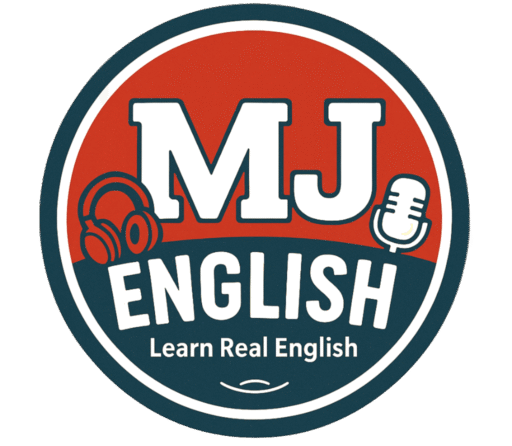寒假就是要出去玩!❄️⛄
天氣冷颼颼,但旅遊的心情最火熱🔥!
今天我們來學一段 winter travel plan English(寒假旅遊計畫英文),看看怎麼用英文詢問別人的寒假安排、聊聊冬季旅行點子,還能順便學會幾句推薦景點的自然英文表達。
🎧Apple Podcast | Spotify
💬 Dialogue 對話
寒假前夕,Tom 想知道 Steven 的假期安排,兩人開始聊起冬季旅行計畫。
English Dialogue
Tom: What are your plans for winter vacation?
Steven: I want to travel abroad.
Tom: Where would you like to go?
Steven: Somewhere I can enjoy the sea view.
Tom: That’s really a good idea. Taking a walk on the beach and lying in the sun are pretty good. I would recommend you to visit Hawaii or Bali.
Steven: I’ve been to Hawaii before, so I’ll choose Bali. I’ve heard that the environment there is very good.
Tom: Yes, that’s a good place to spend the holiday. I went there last winter. It’s really a beautiful and clean place. You’ll have a good time.
Steven: Thank you!
💬 中文翻譯
湯姆: 你怎麼安排這個寒假呢?
史蒂文: 我想去國外旅行。
湯姆: 你想去哪裡呢?
史蒂文: 想去可以看海景的地方。
湯姆: 真是個好主意!在海邊散步、曬太陽都不錯。我推薦你去夏威夷或峇里島。
史蒂文: 夏威夷我去過了,這次選峇里島吧。我聽說那邊環境很好。
湯姆: 是啊,那是個度假的好地方。我去年寒假去過,真的很乾淨漂亮。你一定會玩得很開心。
史蒂文: 謝謝!
📚 Vocabulary Boost 單字加強
| 單字 / 片語 | 詞性 | 中文意思 | 英文例句 | 中文翻譯 |
|---|---|---|---|---|
| winter vacation | n. | 寒假 | What are your plans for winter vacation? | 你寒假有什麼計畫? |
| plan | n./v. | 計畫 | Do you have any travel plans? | 你有旅遊計畫嗎? |
| travel abroad | phr. | 出國旅行 | I want to travel abroad this winter. | 我這個寒假想出國旅行。 |
| sea view | n. | 海景 | This hotel has a great sea view. | 這間飯店的海景很棒。 |
| recommend | v. | 推薦 | I recommend you visit Bali. | 我推薦你去峇里島。 |
| take a walk | phr. | 散步 | We took a walk on the beach. | 我們在海邊散步。 |
| lie in the sun | phr. | 曬太陽 | I love to lie in the sun in winter. | 我冬天很愛曬太陽。 |
| environment | n. | 環境 | The environment there is beautiful. | 那裡的環境很美。 |
| spend the holiday | phr. | 度假 | It’s a great place to spend the holiday. | 那是個很適合度假的地方。 |
| have a good time | phr. | 玩得開心 | You’ll have a good time there. | 你會玩得很開心。 |
🔍 Sentence Patterns 句型整理
| 句型結構 | 中文意思 | 英文例句 | 中文翻譯 |
|---|---|---|---|
| What are your plans for …? | 你對~有什麼計畫? | What are your plans for winter vacation? | 你寒假有什麼計畫? |
| I want to … | 我想要~ | I want to travel abroad. | 我想出國旅行。 |
| Where would you like to …? | 你想去哪/想做什麼? | Where would you like to go? | 你想去哪裡? |
| Somewhere I can … | 一個我可以~的地方 | Somewhere I can relax and enjoy nature. | 一個我可以放鬆、享受大自然的地方。 |
| I would recommend you to … | 我會推薦你~ | I would recommend you to visit Bali. | 我推薦你去峇里島。 |
| I’ve been to … before. | 我以前去過~ | I’ve been to Hawaii before. | 我以前去過夏威夷。 |
| I’ve heard that … | 我聽說~ | I’ve heard that the beach is beautiful. | 我聽說那裡的海邊很漂亮。 |
| You’ll have a good time. | 你會玩得很開心 | You’ll have a good time there. | 你在那裡會玩得很開心。 |
📖 Transcript 逐字稿
J: Welcome to MJ English, everyone. Today, we’re gonna help you unlock some really essential English for planning your next big adventure.
J:歡迎大家來到 MJ English。今天我們要帶你學一些、嗯,非常重要的英文,用在規劃你的下一趟大旅行。
M: That’s right. We’re focusing on winter travel, specifically, how to talk about making those plans.
M:沒錯。我們的主題是冬季旅行,特別是「如何用英文討論旅行計畫」。
J: And to do that, we have a great little conversational scenario. It’s about planning a winter trip abroad.
J:為了做到這點,我們準備了一段很棒的小對話,內容是兩個朋友在計畫冬季的海外旅遊。
寒假前夕,Tom 想知道 Steven 的假期安排,兩人開始聊起冬季旅行計畫。
English Dialogue
Tom: What are your plans for winter vacation?
Steven: I want to travel abroad.
Tom: Where would you like to go?
Steven: Somewhere I can enjoy the sea view.
Tom: That’s really a good idea. Taking a walk on the beach and lying in the sun are pretty good. I would recommend you to visit Hawaii or Bali.
Steven: I’ve been to Hawaii before, so I’ll choose Bali. I’ve heard that the environment there is very good.
Tom: Yes, that’s a good place to spend the holiday. I went there last winter. It’s really a beautiful and clean place. You’ll have a good time.
Steven: Thank you!
💬 中文翻譯
湯姆: 你怎麼安排這個寒假呢?
史蒂文: 我想去國外旅行。
湯姆: 你想去哪裡呢?
史蒂文: 想去可以看海景的地方。
湯姆: 真是個好主意!在海邊散步、曬太陽都不錯。我推薦你去夏威夷或峇里島。
史蒂文: 夏威夷我去過了,這次選峇里島吧。我聽說那邊環境很好。
湯姆: 是啊,那是個度假的好地方。我去年寒假去過,真的很乾淨漂亮。你一定會玩得很開心。
史蒂文: 謝謝!
J: Okay, a really simple, really common conversation.
J:好,這是一段非常簡單、非常常見的日常對話。
M: But so much useful language packed in there.
M:但裡面塞了超多實用的句型和用法。
J: Right. So let’s unpack this a little. The first thing I noticed was that opening line, “What are your plans for…?”
J:沒錯。所以我們先、呃,來拆解一下。第一個我注意到的是開場句:「What are your plans for…?」。
M: Yes. That’s such a powerful structure.
M:對,這是一個非常強大的句型。
J: It is. And you can use it for anything, right? Not just winter vacation. It could be, you know, what are your plans for the weekend?
J:真的,而且用途超廣。不只有冬季旅行,像是你也可以說「What are your plans for the weekend?(你週末有什麼計畫?)」
M: Exactly. Or for dinner tonight. It’s just a perfect all-purpose opener.
M:沒錯,或是像「晚餐你有什麼計畫」。這句真的就是萬用開場白。
J: Then, what I thought was fascinating was how Stephen answered. He didn’t just name a country.
J:而且我覺得很有趣的是 Stephen 的回答,他不是直接講「去哪一個國家」。
M: No, he gave a condition.
M:沒錯,他給了一個「條件」。
J: Yeah, he said…
J:對,他說……
M: “…somewhere I can…”
M:「…somewhere I can…(一個我可以……的地方)」
J: “…somewhere I can enjoy the sea view.” It’s such a natural way to explain what you’re looking for.
J:「…somewhere I can enjoy the sea view.(一個我可以欣賞海景的地方。)」,這是一個自然到不行又非常常用的表達方式。
M: It is, because it tells the other person what’s important to you. Like, you could say, “I want to go somewhere I can relax and enjoy nature.”
M:真的,因為這會告訴對方「對你來說什麼是重點」。像你也可以說:「I want to go somewhere I can relax and enjoy nature.(我想去一個能放鬆、享受大自然的地方。)」
J: Or, “somewhere I can find good food.”
J:或是「somewhere I can find good food(能找到好吃食物的地方)」。
M: It gives the conversation direction.
M:這會讓對話有方向、有內容。
J: Which leads us right into Tom’s suggestion. He hears “sea view” and immediately has ideas.
J:這就順勢帶到了 Tom 的建議。他一聽到「海景」馬上就有靈感。
M: And notice the phrase he uses.
M:然後注意看他用的那句話。
J: “I would recommend you to…”
J:他說的是:「I would recommend you to…」。
M: “I would recommend you to visit Hawaii or Bali.”
M:「I would recommend you to visit Hawaii or Bali.(我會建議你去夏威夷或峇里島。)」
J: It’s polite but also quite direct, a really good way to give advice.
J:這句既禮貌又蠻直接,是給建議的超好用句型。
M: I agree. It feels helpful, not pushy.
M:我同意,聽起來是幫忙,而不是在勉強對方。
J: Then we get to Stephen’s decision-making process.
J:接著我們看到 Stephen 的決策過程。
M: Right. And he uses two really key phrases for this. First, to rule out one of the options…
M:沒錯。而且他用了兩個超重要的關鍵句。第一個是用來「排除」選項的。
J: He says, “I’ve been to… before.”
J:他說:「I’ve been to … before.(我之前去過……)」。
M: “I’ve been to Hawaii before.” So simple, so clear. It immediately explains why he’s not choosing it.
M:「I’ve been to Hawaii before.(我之前去過夏威夷。)」,超簡單、超清楚,馬上就能知道他為什麼不選那裡。
J: And then, for the place he is choosing, he uses outside information.
J:然後對於他要選的地方,他用的是「外部資訊」。
M: He does. He says, “I’ve heard that…”
M:沒錯,他說:「I’ve heard that…」。
J: “I’ve heard that the environment there is very good.” It’s how you can, you know, bring in something you read online or that a friend told you.
J:「I’ve heard that the environment there is very good.(我聽說那裡的環境很好。)」,這句就是用來引用「你看到的資訊或別人告訴你的消息」。
M: It’s a great way to justify your choice.
M:這是讓自己選擇更合理、更有依據的絕佳方式。
J: And one last thing, a quick vocabulary boost: Tom’s description of the vacation.
J:最後還有一個小重點,順便補充一下:Tom 描述假期的兩個動作。
M: Oh yeah, that was great. He mentions taking a walk and lying in the sun.
M:對,他提到「taking a walk(散步)」跟「lying in the sun(曬太陽)」。
J: Little phrases like that really help paint a picture, don’t they? They make the idea of the trip feel more real, more appealing.
J:這些小動作、小短語真的會讓畫面更鮮明,對吧?會讓旅行的想像變得更真實、更誘人。
M: Absolutely. Because in the end, the whole point is, like Tom says, to have a good time.
M:完全同意。因為最終的目的,就像 Tom 說的,就是「好好享受」。
J: Exactly. So mastering these kinds of conversational building blocks will make planning your next travel abroad trip, or any plan really, just so much easier.
J:沒錯。所以掌握這些會話基礎句型,不管是規劃下一趟海外旅行,或是任何計畫,都會變得超輕鬆。
M: It really will. And if you want the full transcript, all the key vocabulary, and these useful sentence patterns written down for you…
M:真的會。那如果你想要完整逐字稿、所有重點單字、還有這些實用句型整理好的版本……
J: You know what to do.
J:你知道該怎麼做。
M: Just click the link below.
M:就點下面的連結。
J: It’s all there for you.
J:所有資源都在裡面。
M: So keep practicing and we’ll catch you next time.
M:所以持續練習,我們下次見。



